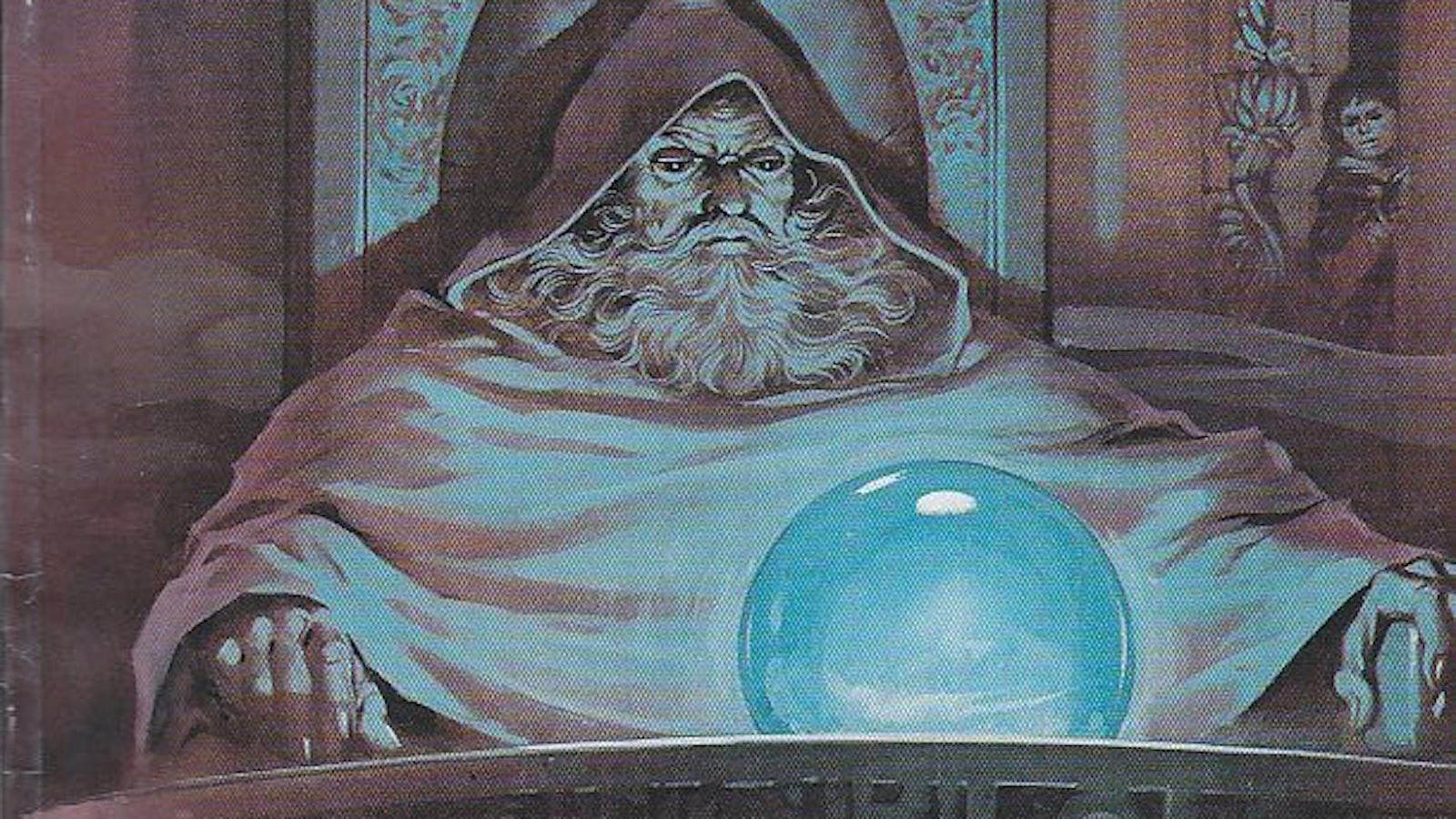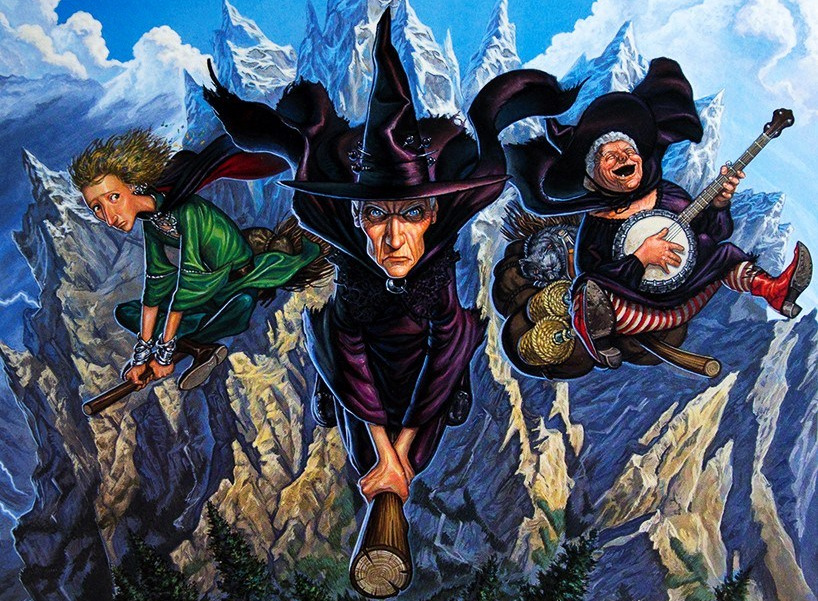Everyone should read @h-sleepingirl's excellent essay You Are A Wizard, So Pour Over The Tomes. In it, they argue that hypnosis is magic, and respecting the discipline means studying the historical texts of hypnosis like books of magic. Not uncritically, but looking to integrate historical knowledge and use it to inform your practice.
I really like this, and I think it speaks very well to my own path. I like to read.
 | |
| Pictured: Me pondering my tomes |
I think I, and especially @khatsha, have read more than average, especially when it comes to books. I'm going to be first in line for @h-sleepingirl's analyzing Erickson class.
I think this describes one road to developing as a hypnotist, one skill tree. It's the scholarly road, and there are many riches to be obtained there. I don't think it's the only road though, and it might not resonate with everyone. I think of hypnosis as an artform, far more than a science, in that it is rooted in expression of your inner life and tastes and relationships as much as hard skills and knowledge, but all artists can potentially benefit from diligent study and analysis of what came before.
But I think of telling someone learning to play rock guitar: you ought to master music theory, and classic Blues, and flamenco guitar, if you really want to be a virtuoso. Or a painter, you should study the dutch masters, and spend a couple years on colour theory, and at least a year on anatomy. No doubt all those things could help, to broaden and deepen someone's practice, and open new doors, but they might not be a particular person's path. For example, maybe what they need is to spend 1000 hours bashing on that guitar or that sketchbook in a basement somewhere, until they break through to what they really mean to say.
I have met "hedge wizards", who have developed amazing, and, importantly, very original hypnosis technique via almost pure intuition and feedback, or alternately, person-to-person observation and teaching. The space of hypnosis is laughably underexplored, especially in what's been published, and creativity can come from anywhere. I feel the next big breakthrough is just as likely to come from a 20 year old My Little Pony transformation fetishist, who primarily reads AO3.
I'm also reminded of the witches and wizards in Discworld, both with their own powerful, vastly different ways of accumulating knowledge.
The wizards with their vast library, with their pride in deep study, building cathedrals of theory and dispute over many years and generations of painstaking work.

And then there's the witches, whose magic is mostly from apprenticeship, experience and intuition, from being hands-on solving people's problems and from developing their own intensely individual, to the point of bloody-minded, personality. Interestingly, like some hypnotic techniques, the wizards are careful to credit the lineage ("Collatrap's Instant Pickling Stick", "Spold's Unstirring Divisor") whereas that might be inconceivable to witches - rarely categorizing and analyzing techniques, they might not even choose to see atomic divisions between them.
I'm sure most people will grow in both ways, and I firmly believe in the power of finding an idea in an old book that blows your socks off and changes the whole course of your practice (for me that would definitely be Erickson's Hypnotic Realities!) Curiosity about the roots of what you do is always a good thing.
But if you do hypnosis and you don't feel like a wizard: that's ok too.
---
sleepingirl wrote a really interesting reply, which I won't reproduce in full, but the last lines were:
I just think from my perspective as an author, as someone who tries to be on the pulse of what this community collectively knows or doesn’t know, that people overall need more encouragement to read rather than permission to NOT read.
My reply:
I think that I read your original post as being focused on reading almost exclusively, and one reason I absolutely loved your personal guitar story is that it shows that investing in being connected to the continuity of knowledge about the artform can take many different forms, in your case one on one teaching and observation. I was reading about how Jimi Hendrix learned guitar, and though he never had a lesson or opened a music book, and mainly learned by countless, compulsive hours of playing and experimenting - including developing his signature odd upside-down stringing of a right handed guitar for his left hand - he also spent enormous amounts of time listening to and imitating records, and later jamming with more experienced musicians. I see both sides in his story: the urgency of being curious and connected to the history of your artform, but also how there are many different paths to that, and prescribing one for someone that doesn't suit them too forcefully could even have a harmful effect on their enthusiasm and development of their own voice.
Where we might diverge the most is that I'm not sure I think there's anything special about reading per se in this space, where so many available books are incredibly shoddy and by low-knowledge grifting blowhards (and increasingly: ChatGPT) Hypnosis instruction manuals are literally some of the first magazine-based mail order scammy books, going back at least 125 years. I can imagine you saying, "I mean read the right books", but then I would say, is that any different to saying the right podcast, the right blog post, the right class, the right in-person demonstration? All can be a dense package of someone's valuable experience, learning and perspective. In this space of recreational hypnosis (as opposed to say, the study of the Zebra Mantis Shrimp) being in print for decades doesn't automatically signal to me that someone has a better grasp on theory or practice.
Someone pointed out though that I'm probably a bit blind to the fact that I'm swimming in a sea of people who know at least a bit (and often a lot) of hypnosis theory, and that there are plenty out there who are incurious about that and just want to get off. Like it's tempting for me to think most people in the space have at least passing knowledge of Mesmer, Erickson, Elman, and Bandler, but actually you don't know until you learn about it! So I believe in learning some history more than I thought. But I still fundamentally think it's such a wild, wide open space that although I'm incredibly grateful for the people diligently mapping out the body of literature, panning for gold, there's quickly diminishing returns after a handful of tomes, and my next revelation could as easily be found jamming with like-minded friends (or as we call it labbing) as in an older book. As you allude to, there's so many things one could be doing to develop that likely would help, but it's often a question of where to put your time.
I've even had a somewhat rocky relationship with the whole idea of always striving for greater mastery in my hypnosis practice, sometimes feeling like that can get in the way of connection and being in the moment, not to mention enjoying my sex life, but I sincerely agree with your sentiment about taking our fun seriously sometimes! I can see a shelf of tomes where I'm sitting, including some excellent ones by @h-sleepingirl, and very much looking forward to cracking a new one that just arrived today (Ormond McGill's New Encyclopedia of Stage Hypnosis!). In just a couple of weeks I'm looking forward to attending dozens of hours of classes by my peers (including one by @khatsha that is going to blow everyone's mind). I feel so lucky that this is my thing. It's an enormously rich intellectual history we have to draw on, and I really believe an even richer present and future.
